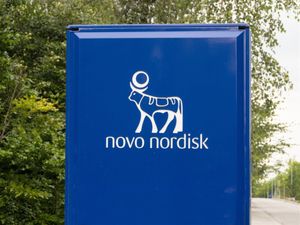Teaching clarity over charisma, mentorship over performance, and presence over pressure
PHILADELPHIA, PA / ACCESS Newswire / October 15, 2025 / In a new interview focused on leadership in medicine, physician and educator Dr Andre Posner is calling for a shift in how young doctors are taught and mentored-advocating for slower thinking, quieter leadership, and more meaningful mentorship inside hospitals.
"We're training smart people to rush and react, instead of helping them think clearly," Posner said in the interview. "Clarity beats charisma every time."
With decades of experience as a hospitalist at Penn Medicine and previous posts at Frankford Hospital and Main Line Health, Dr Posner has earned multiple awards for his teaching style, including the D. Stratton Woodruff Award for Excellence in the Teaching of Medicine and the 2022 Faculty Award for Resident Teaching.
In the interview, he shares how simple changes-like pausing before answering, asking instead of telling, and letting silence lead-can build better doctors. "I started pausing five seconds after I asked a question. That small change helped residents speak up more and get to their own answers."
His quiet approach stands in contrast to the often high-speed, high-pressure culture of hospital education. According to Medscape's 2023 Resident Survey, 43% of residents describe their learning environment as rushed or unclear, while nearly 60% report burnout symptoms. These conditions don't just affect students-they directly impact patient care.
Posner's message is not about doing less, but doing things differently. He believes small habits can make a big difference. "Take a short walk without your phone. Do one thing at a time. Let your team finish their thoughts. These are small acts of leadership that build better medicine."
A Call to Action: Lead With Clarity
Dr Posner isn't launching a campaign or asking for donations. He's asking doctors, educators, and healthcare professionals to change how they show up-starting with how they teach.
Here's what anyone in medicine can do:
Pause for five seconds after asking a learner a question
Use short frameworks or checklists to simplify complex cases
Be open about mistakes to build trust with new team members
Take short breaks to reset thinking and avoid mental overload
Mentor one person. Just one. Ask how they think-not what they know
"Good teaching doesn't need to be loud or impressive," Posner said. "It just needs to make someone feel like they can figure things out on their own."
To read the full interview, visit the website here.
About Dr Andre Posner
Andre Posner is a hospitalist and award-winning medical educator based in Philadelphia. He has worked across several leading healthcare institutions and is known for his patient-centred, structured, and mindful approach to teaching. His focus on practical frameworks, mentorship, and clarity has helped shape the next generation of physicians.
Contact: info@drandreposner.com
SOURCE: Dr. Andre Posner
View the original press release on ACCESS Newswire





